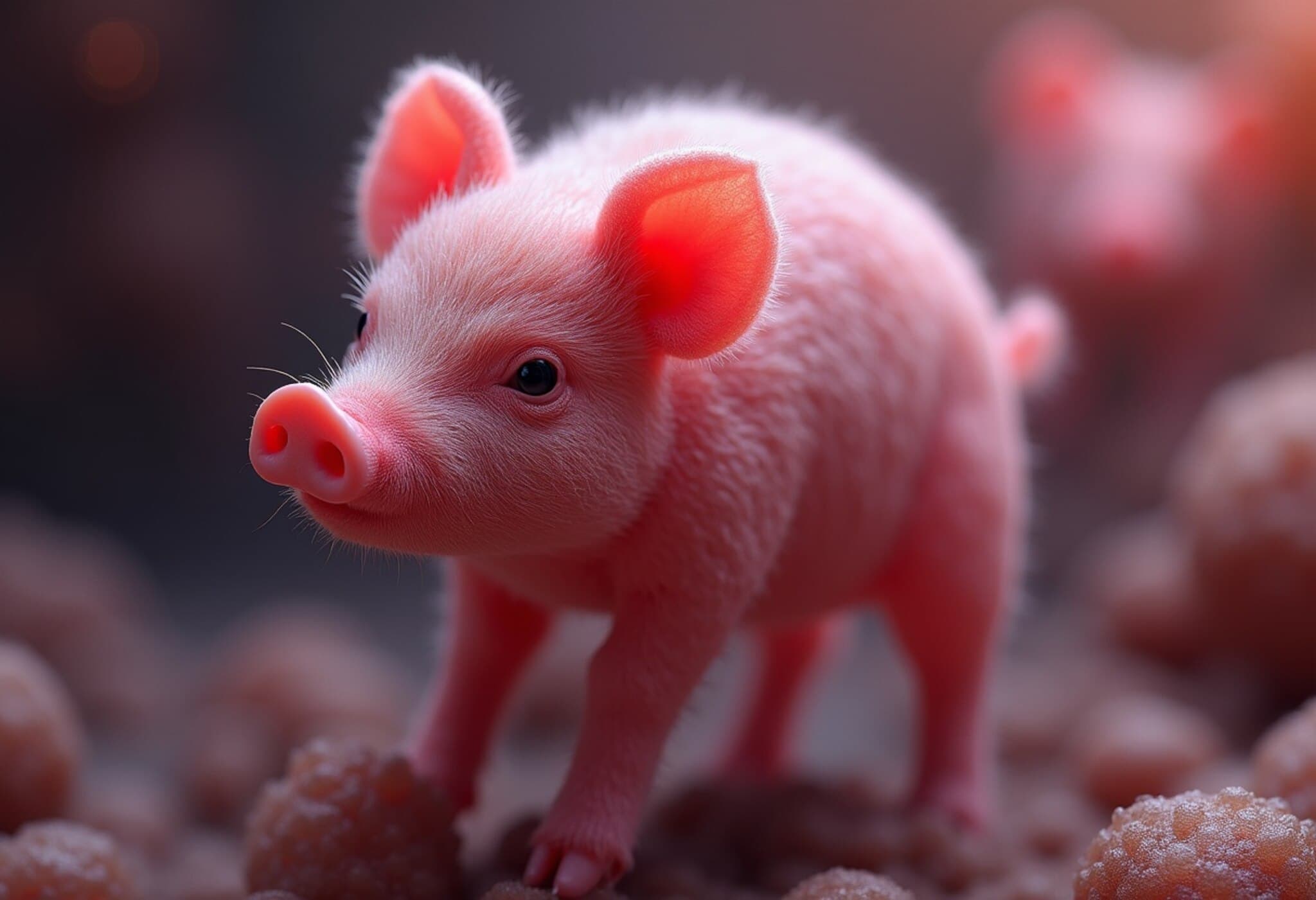A Groundbreaking Leap in Organ Transplantation Research
In a remarkable medical breakthrough, researchers in China have successfully cultivated early-stage, beating human hearts within pig embryos. The embryos, which survived up to 21 days, were showcased recently at an international stem cell research conference, marking a pivotal step toward growing human-compatible organs in animals.
Why Pigs Are the Chosen Hosts
Pigs have emerged as ideal candidates for such experiments due to their organ size and structure closely resembling those of humans. This similarity makes them promising vessels for growing human organs that could permanently ease the global transplant shortage.
The Science Behind the Breakthrough
- Human stem cells were reprogrammed to enhance survival and growth in pig embryos.
- Researchers disabled two pig genes crucial for heart development, creating a niche for human cells.
- Human cells were then introduced into pig embryos at the morula stage (just days post-fertilization).
- The embryos were implanted into surrogate sows and developed for up to 21 days.
- Hearts formed within embryos were about the size of a fingertip and exhibited beating motions.
- Human cells within the hearts were tracked using luminescent markers.
Promising Yet Preliminary Findings
While the development of beating human heart tissue in pig embryos is encouraging, important questions remain unresolved. The exact degree of human cell integration into the heart tissue is still unclear, and the percentage of human versus pig cells in the organ remains to be precisely quantified.
Ethical and Scientific Challenges Ahead
This research lies at the frontier of medical science, but it also ignites significant ethical debates. Concerns revolve around animal welfare and the moral implications of creating human–animal chimaeras. Furthermore, for organs grown in animals to be viable for transplant, they must be entirely human at the cellular level to prevent immune rejection.
Leading experts urge careful verification of how deeply human cells integrate with animal tissues to guide ethical frameworks and future applications.
The Road Forward
This pioneering work opens new possibilities in addressing the chronic shortage of transplantable organs. However, as the science advances, it will be crucial to balance innovation with bioethical responsibility, ensuring that groundbreaking treatments remain humane and safe.











